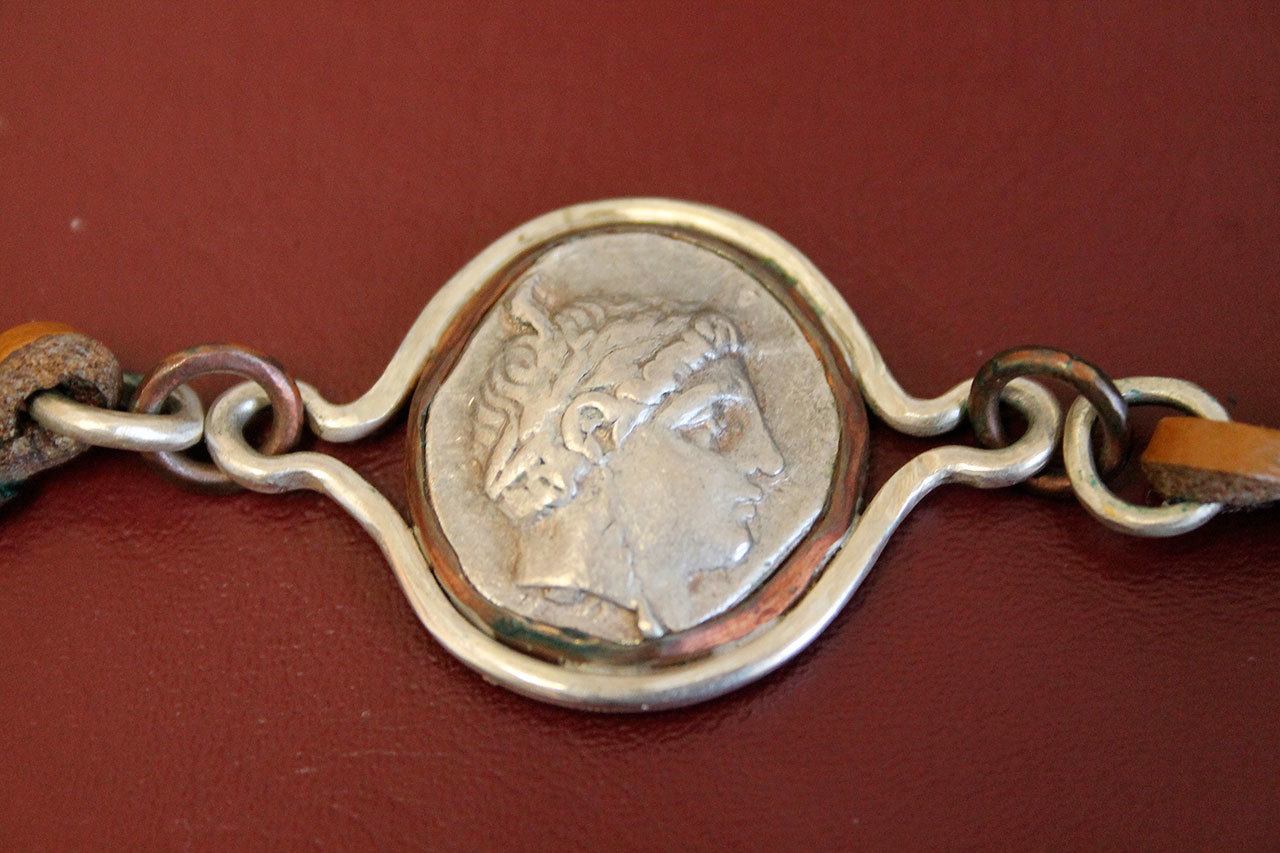Bayview resident Joseph Kleinman always wanted to be a historian.
In the end, he never worked in the academic field. But he’s putting his knack for history to good use with what he sells in his free time: ancient coin jewelry.
“I have always been excited by the prospect of owning a genuine ancient art object,” Kleinman said. “Sharing that excitement is something I have become passionate about.”
Kleinman, who sells the artifacts under the name JoBar &Associates, crafts pendants from authentic ancient coinage from Greek, Roman, Egyptian and Persian civilizations in his Bayview home. Having accumulated a hefty collection of ancient coins over the years, he built enough inventory to start selling them around the world. His necklaces not only serve as wearable art, but give buyers a history lesson.
Kleinman utilizes metal fabrication skills he picked up in metalworking classes to make bezels that hold the coins in place as they hang from leather necklaces. He doesn’t use metal chains in his pieces, because he says that’s not what people would have worn in ancient civilizations, since the material was too expensive. For Kleinman, his work is all about authenticity and education.
Each pendant comes with historical information written by Kleinman detailing the coin’s story. Each piece also includes details about which ancient civilization used it as currency, how it was used and when it was minted.
“My mission is, in each piece, to create an educational and one-of-a-kind ancient wearable art that can be enjoyed by both men and women,” Kleinman said. “Plus, I just think it’s exciting to hold something that people used 2,000 years ago.”
Kleinman started collecting ancient coins about 35 years ago to satisfy his desire to possess a piece of history. He initially intended to purchase coins that were already repurposed as pendants, but he wasn’t a fan of how the ancient coin jewelry he came across was presented. Many of the pendants looked like they were designed by jewelers, who Kleinman says embellish the pieces and ultimately distract from the coin itself. For him and his clients, the art is in the preservation of the coin.
He refuses to alter the coinage, only using olive oil every now and then to clean the surface.
“I had been looking for ancient Greek, Roman and Byzantine jewelry for months,” client Eren Whitlow said. “I only found super ‘blingy,’ cheesy pieces until I came across his website.”
Kleinman is adamant about not altering the coins, because so few are still around. He says the reason is because classic coinage is one of the few art forms to survive the breakup of the Roman Empire, since most art associated with Paganism was “melted down or broken up.”
Although so few remain, there’s an international market for ancient coins which Kleinman says is based out of Europe. There is a dealer he primarily works with, although he has a network of clients and dealers around the globe. His widespread connections and years of collecting have left him with an estimated inventory of $30,000.
“I would rather sell than not sell, but I get a little sad when I part with a piece I really like,” Kleinman said. “I feel a little separation anxiety.”
Kleinman says ancient coinage, and history itself, should be of interest to everybody since it’s important to know where our society comes from. He’s also trying to make it more affordable to hold onto a piece of history, rather than paying upwards of $1,000 at a gallery.
“It’s who we are,” Kleinman said. “The ancient Greeks and Romans are responsible for western civilization. They gave us our democracy, our laws, our government, philosophies, science and mathematics. We wouldn’t exist without them.”



